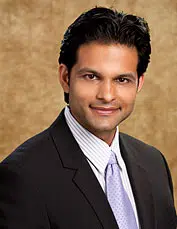Call Now!
Torrance Office: +1 (424) 360-0155

Are you interested in the types of spinal cord stimulators? If so, it would be our pleasure to help you. We are Rolling Hills Medical, and we provide you with access to some of the top specialists in the treatment of back pain. We offer a wide variety of spinal cord stimulators for chronic pain, and it would be our pleasure to customize our treatment options to meet your needs. Learn more about spinal cord stimulators below, and let our professionals help you find the best treatment option to meet your needs.
A spinal cord stimulator is designed to help you manage chronic pain. Even though there are multiple treatment options available, a spinal cord stimulator could play an important role in your treatment process. Some of the types of spinal cord pain that a stimulator could treat include:
If you suffer from chronic pain, there is a chance that a spinal cord stimulator could be right for you.
In general, there are three separate types of spinal cord stimulators. They include:

You should work with a professional who can help you decide what type of spinal cord stimulator is right for you.
Do spinal cord stimulators work? Ultimately, the main goal of all of these spinal cord stimulators is to deliver electrical nerve stimulation that can treat chronic pain. By delivering electrical impulses to nerves that transmit pain signals, it is possible to calm them down. That way, they are not constantly transmitting pain signals to the brain. As a result, they can be an effective treatment option for chronic pain.
If you are trying to find the right spinal cord stimulator to meet your needs, there are a few factors you should consider. These include:
Consider these factors when looking for spinal cord stimulators for chronic pain.
If you are having a hard time deciding between the different types of spinal cord stimulators, we can help you. At Rolling Hills Medical, we can help you develop a comprehensive treatment option for chronic pain.
